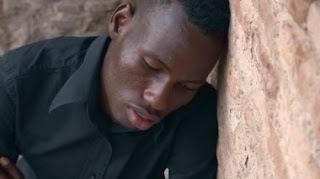 "Being Checked Out" illustrates a therapist's attempt to engage an untrusting, young African-American man in the treatment process.
"Being Checked Out" illustrates a therapist's attempt to engage an untrusting, young African-American man in the treatment process.
This is a first time I am seeing Maurice, a tall, thin, 22 year old African-American man. He looks uneasily around the room, settles himself in the chair across from me, still holding his phone and keys in his hands.
“How can I help you?” I ask.
“Dr. Hudson said I should come. He’s my English professor at the University. Says I have more potential than I show.”
“And do you agree with him?”
“About my potential, yeah, I do.” Pause. “But if you can help me, I don’t know.”
“Because…?”
“I don’t mean to be disrespectful, but you’re white. And you’re a lady.”
“You’re right. I am both white and a lady. And that makes you feel I couldn’t help you, couldn’t understand you?”
He nods.
“Well, we’d only know that as we got to know each other and, hopefully, learned to trust and respect each other.”
Silence.
Maurice sighs, shakes his head. “I don’t know. I don’t know if I can just do that, just start talking and hope that I can trust you.”
“Do you trust Dr. Hudson, since he’s the person who referred you to me?”
“I trust him as a teacher. I’m not telling him all kinds of shit about myself.”
“That’s true.”
Silence.
“You’re not trying to talk me into trusting you,” he says.
“I think that’s pretty hard to do. But I was about to ask what you thought might help you trust me enough to tell me about yourself.”
“I know shrinks don’t usually do this, but what if I ask the questions, ask you about yourself?”
“Well, I guess that would depend what the questions were. If you asked me to tell you about every person I ever dated and what our sex life was like, I’d probably want to know how that was relevant to your concerns about trusting me.”
He laughs. “No, I wasn’t going to ask you that.” Pause. “Although now that you mention it, I did think of something kind of like that. Did you ever date a black man?”
I hesitate. “The answer happens to be yes, but I don’t think if the answer was no, that would mean you couldn’t trust me.”
“No. But, it’s a piece of information.” Pause. “Did you ever have a black friend?”

“Yes.”
“Did you ever live in the ghetto?”
“No.”
“Have you ever been inside a prison?”
“Yes.”
He looks surprised. “How come?”
“I worked as a group therapist in a men’s prison when I was in graduate school. I did my doctoral dissertation in that prison. I also worked in a forensic center and at a women’s prison.”
Maurice nods his head. He places his phone and keys on the small table next to him.
I take those gestures as a sign I can take on my more traditional therapeutic role. “So I assume you or someone close to you has been in prison.”
“Yeah. Like all my brothers. I did a little time in juvie, but no hard time.”
“And you feel how about having been the only one of your brothers to avoid prison?”
“Bad. Lucky. Glad. Guilty. Like shit. Fortunate.”
“Lots of mixed feelings.”
“Yeah.”
“So can you tell me more about you?”
Silence.
“I can, but I wouldn’t want you to think that means I totally trust you.”
“Maurice, trust takes a long time to build. There’s no question, no hundred questions that you could ask me that would assure you that you can trust me. And besides, trust is a complicated word. What does trust mean to you?”
“First thing I thought, ‘That you’re not going to stab me in the back.’ And I guess I mean that both literally and figuratively.”
“I get it that young black men have to first be concerned for their lives. And after that, I guess you’re saying that you’re afraid I’ll somehow lure you in and then turn on you, betray you.”
Maurice nods. “I want to write. I think I have something to say. But I’m ignorant. I don’t know enough. I need to get my degree. So many of my people – both my family and black people in general – have sacrificed so much so that I can have this opportunity. I don’t want to let them down. I can’t let them down. But I can’t get out of my own way,” Maurice says with clenched teeth.
“Any idea why that is?”
Silence.
“I wish you were black. And I wish you were a man.”
“Well, I’m not,” I say shaking my head. “And it’s not like I have any black, male colleagues I can refer you to. So I guess you’ll have to decide if I’m good enough.”
“I like you, Doc. I guess that’s as good a place as any to start.”
![]()